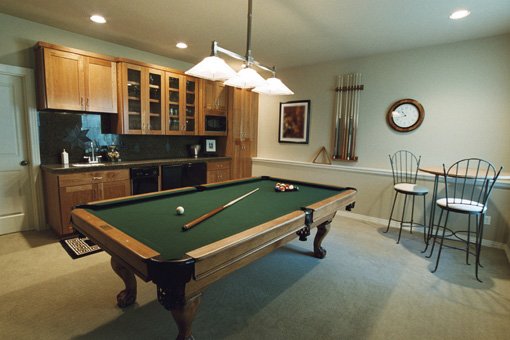How to Choose the Right Basement Design for Your Home
Having a basement in your home provides valuable additional space that can be utilized for various purposes. Whether you are planning to create a functional living area, a recreational zone, or a storage space, choosing the right basement design is crucial. A well-designed basement can enhance the overall functionality and aesthetic appeal of your home. In this article, we will guide you through the process of selecting the right basement design that suits your needs and preferences.
- Determine the Purpose: The first step in choosing the right basement design is to identify the primary purpose of the space. Are you planning to create an entertainment area, a home office, a guest suite, or a combination of different functions? Understanding the purpose will help you make informed decisions about the layout, furniture, and overall design elements.
- Assess the Space: Evaluate the available space in your basement. Take measurements and note any architectural features, such as windows, support columns, or utility areas. Consider the ceiling height and any potential obstacles that may impact the design. Understanding the limitations and possibilities of the space will guide your design choices.
- Plan the Layout: Create a layout plan that optimizes the use of space and ensures efficient flow. Divide the area into functional zones based on your identified purposes. For example, allocate areas for seating, storage, workstations, or recreational activities. Consider factors such as natural light, ventilation, and access to utilities when arranging the layout.
- Consider Lighting and Ventilation: Basements typically have limited access to natural light, so incorporating artificial lighting is essential. Plan for a combination of overhead lighting, task lighting, and ambient lighting to create a well-lit and inviting atmosphere. Additionally, assess ventilation options to ensure proper air circulation and prevent moisture buildup.
- Choose Flooring and Wall Finishes: Select appropriate flooring and wall finishes that align with the desired function and aesthetic of your basement. Consider durable and moisture-resistant materials for basement environments. Options may include laminate flooring, vinyl tiles, or carpet tiles. Choose wall finishes that are easy to clean and maintain while adding warmth and character to the space.
- Insulate and Soundproof: Proper insulation is crucial for maintaining a comfortable and energy-efficient basement. Insulate the walls, floors, and ceilings to regulate temperature and reduce noise transmission. Soundproofing measures, such as acoustic panels or insulation, can also be considered for areas where noise control is important, such as home theaters or music studios.
- Incorporate Storage Solutions: Basements often serve as storage areas, so integrating effective storage solutions is essential. Consider built-in shelves, cabinets, or modular storage systems to maximize the use of space. Customizable storage options will help you keep the basement organized and clutter-free.
- Seek Professional Advice: If you are unsure about the technical aspects or need assistance with the design process, consulting with a professional architect or interior designer specializing in basement renovations can be beneficial. They can provide expert advice, offer creative solutions, and help you navigate any specific challenges related to basement design.
- Personalize the Design: Finally, infuse your personal style and preferences into the basement design. Choose colors, furniture, and decor that reflect your taste and create a welcoming ambiance. Add personal touches through artwork, photographs, or other meaningful items to make the space uniquely yours.
By following these guidelines, you can make informed decisions and choose the right basement design that transforms your space into a functional, comfortable, and visually appealing area in your home. Remember to prioritize functionality, consider the specific needs of your household, and create a design that aligns with your lifestyle. A well-designed basement can not only expand your living space but also add value to your home for years to come.






